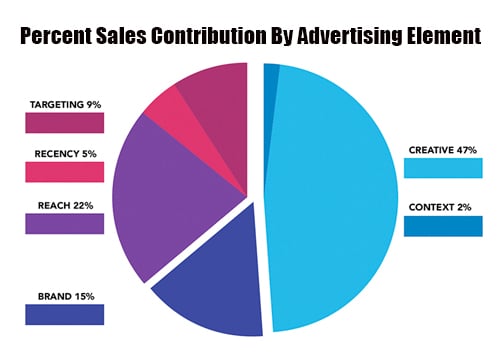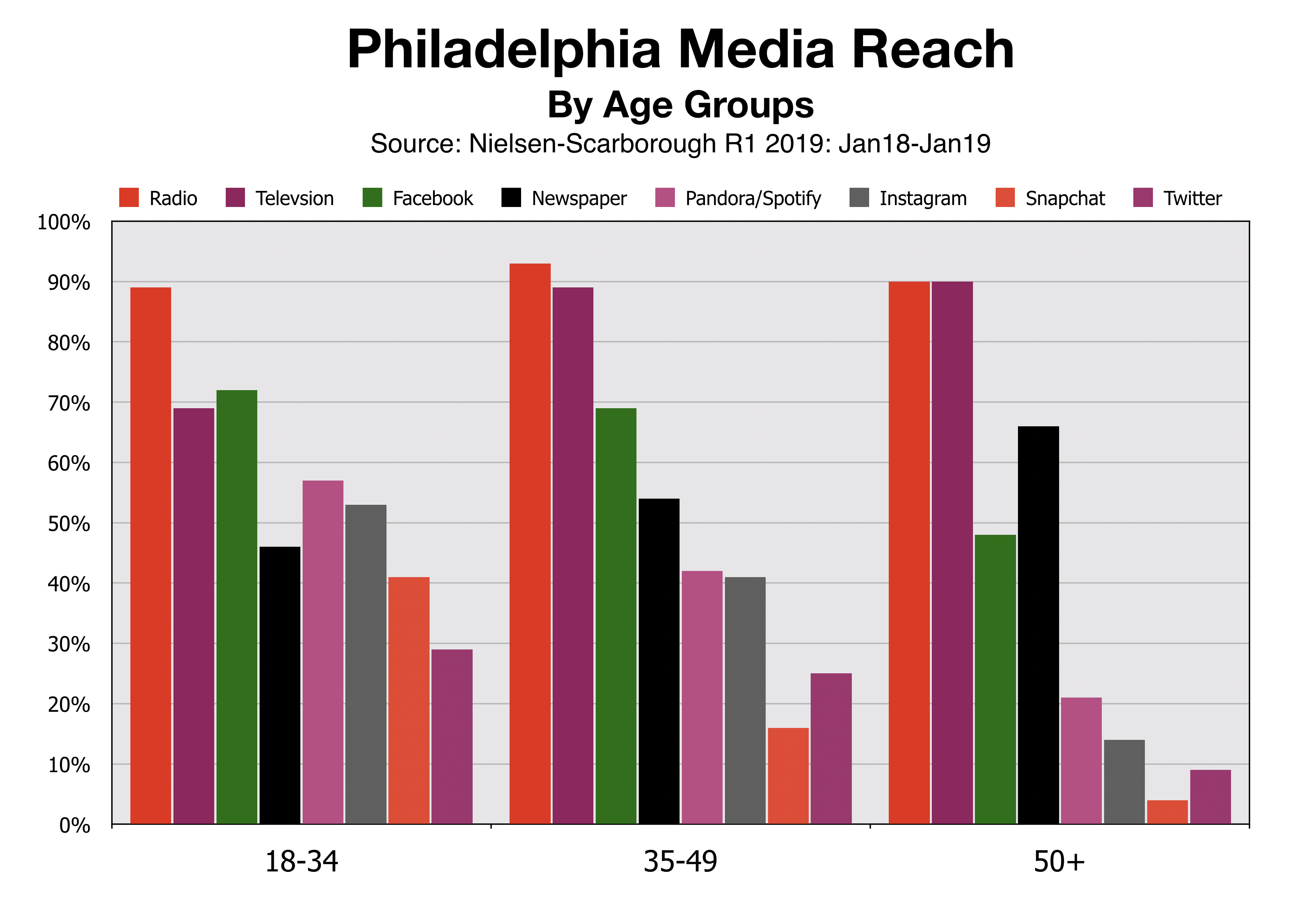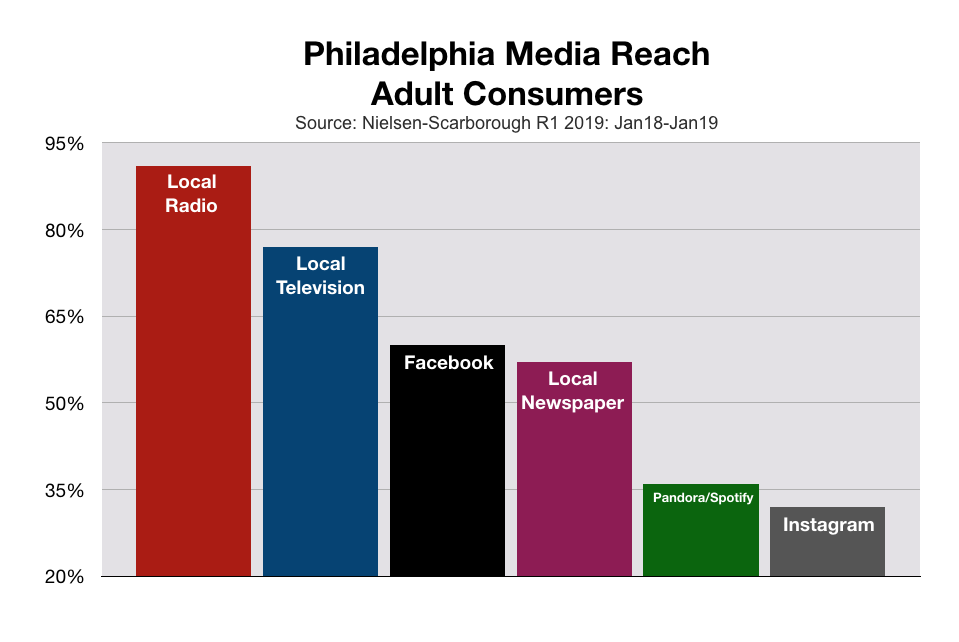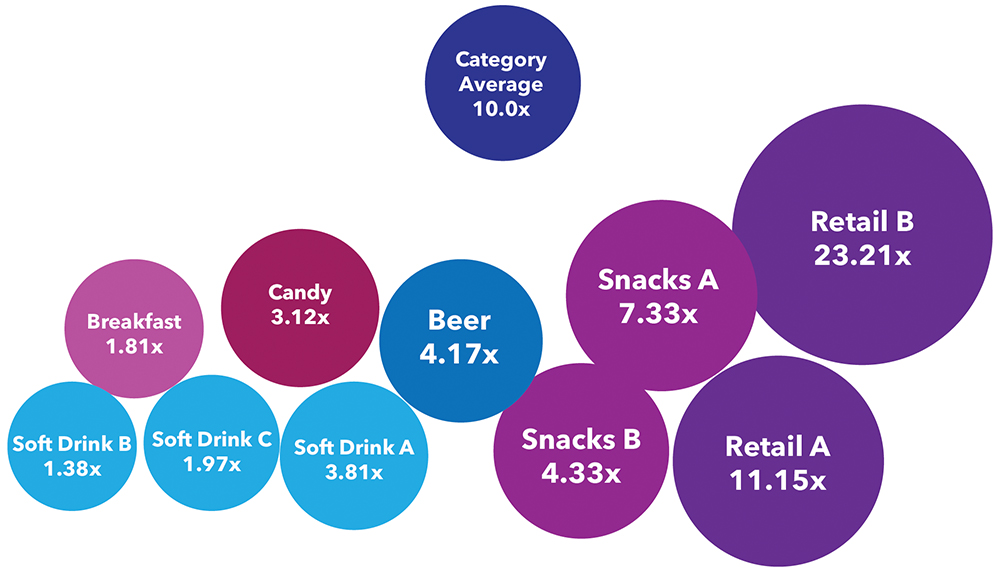 There have been more recessions in America than presidents, 47 vs. 45. Many economists believe number 48 is looming.
There have been more recessions in America than presidents, 47 vs. 45. Many economists believe number 48 is looming.
The textbook definition of a recession is a period of declining economic performance across an entire economy, frequently measured as two consecutive quarters. In other words: it's a time when most Delaware Valley small business owners sell fewer of their goods and services.
There is one thing a recession is not. It is not a time for Philadelphia area small business owners to stop advertising.
One of the greatest marketers of all time, Henry Ford, once said, "The man who stops advertising to save money is like the man who stops the clock to save time."
What you had for breakfast this morning may prove Mr. Ford's observation.
The New Yorker magazine financial columnist James Surowiecki writes, “In the late nineteen-twenties, two companies—Kellogg and Post—dominated the market for packaged cereal. It was still a relatively new market: ready-to-eat cereal had been around for decades, but Americans didn’t see it as a real alternative to oatmeal or cream of wheat until the twenties.”

“So, when the Depression hit, no one knew what would happen to consumer demand. Post did the predictable thing: it reined in expenses and cut back on advertising. But Kellogg doubled its ad budget, moved aggressively into radio advertising, and heavily pushed its new cereal, Rice Krispies. (Snap, Crackle, and Pop first appeared in the thirties.)
“By 1933, even as the economy cratered, Kellogg’s profits had risen almost thirty percent, and it had become what it remains today: the industry’s dominant player.”
What you ate for lunch could also be an example of a company that thrived by advertising its way through a recession.
In a recent article in Forbes, media consultant Brad Adgate explains that "In the 1990-91 recession, Pizza Hut and Taco Bell took advantage of McDonald’s decision to drop its advertising and promotion budget. As a result, Pizza Hut increased sales by 61%, Taco Bell sales grew by 40% and McDonald’s sales declined by 28%."
Many Delaware Valley business owners, unfortunately, do not have the financial resources of Kellogg's or Pizza Hut. So, it is inevitable that some advertising budgets may need to be trimmed or re-configured. For those companies, advertising on Philadelphia radio makes the best sense for several reasons.
According to Nielsen, one of the most potent components of a marketing campaign, as it relates to sales, is reach. This is the number of consumers who actually are exposed to an advertiser's message.
Reach, it turns out, is more powerful than targeting, branding, context, or recency.
 Philadelphia radio, provides, by far, the largest reach of any local advertising medium. It reaches significantly more consumers than local TV, local newspaper, social media platforms like Facebook, or streaming audio sites like Pandora and Spotify.
Philadelphia radio, provides, by far, the largest reach of any local advertising medium. It reaches significantly more consumers than local TV, local newspaper, social media platforms like Facebook, or streaming audio sites like Pandora and Spotify.
More importantly, Philadelphia radio's omnipresence is true among consumers of all ages, including generations X, Y, and Z; Millennials and Boomers. Everyone.
 The other reason radio should play a primary role is during an economic downturn is the mediums well-documented return-on-investment (ROI).
The other reason radio should play a primary role is during an economic downturn is the mediums well-documented return-on-investment (ROI).
Over the past few years, Nielsen has conducted over 20 studies to determine what type of ROI a business can expect from radio advertising. Although the results varied by industry, the average company generated $100 in sales for ever $10 invested.
The chart below shows the range of returns from each study.
AdAge, a trade magazine for advertising professionals, calls these types of return "eye-popping". The magazine goes on to say radio's ROI is superior to commercials on TV, online, and social media.
Local business owners have always known that they can expect impressive returns-on-investment when advertising on Philadelphia radio stations.
 Nolan Painting is, by definition, a small business. The company was started 40 years by Kevin Nolan with a just a couple-of-painters. Today, this Havertown based company has 125 employees and has grown to be the largest residential painting company in the United States.
Nolan Painting is, by definition, a small business. The company was started 40 years by Kevin Nolan with a just a couple-of-painters. Today, this Havertown based company has 125 employees and has grown to be the largest residential painting company in the United States.
For a local contractor to become that large is especially remarkable when the company only paints homes in Philadelphia, Bucks, Chester, Delaware, and Montgomery Counties. This year, according to April Torrisi, Nolan Painting's Marketing Manager, "we are on track to do $12,000,000 in sales."
"Advertising on Philadelphia radio," says Ms. Torrisi, "is one of our top four sources of acquiring new jobs. It ranks with repeat business from past customers, referrals, lawn signs, and the advertising on our own trucks. Our return on investment on our radio advertising dollars has been very strong."
Landis Block And Concrete in Souderton, PA also has grown with the help of advertising on Philadelphia Radio stations.
The company is co-owned by brothers Jarrod and Jamie Nyce. Their grandfather started the company in 1943 as Nyce Crete in Landis, PA which is still operated by the brothers. Originally, the company primarily sold ready mix concrete to contractors.
 Four years ago, the brothers began advertising on Philadelphia radio with a single station. The first commercials included the voice of a well-known on-air personality encouraging listener to buy from Landis Block. "Radio personalities have built a lot of trust with their audience," says Jarrod. "Using them in our commercials extends that trust to our business."
Four years ago, the brothers began advertising on Philadelphia radio with a single station. The first commercials included the voice of a well-known on-air personality encouraging listener to buy from Landis Block. "Radio personalities have built a lot of trust with their audience," says Jarrod. "Using them in our commercials extends that trust to our business."
Almost immediately, Mr. Nyce began to notice the results of his efforts on Philadelphia radio. "New customers started telling us right away that they learned about us on the radio."
By the end of the first year of advertising, Mr. Nyce says Landis Block saw a 5% uptick in business. A strong enough return to add a second Philadelphia radio station into the advertising mix."
"At the end of the second year," he says, "we started seeing 25% growth. Our retail business was through the roof."
Mr. Nyce attributes 40% of that growth to radio advertising.
"If we ask ten new customers how they heard about us, four will say radio advertising. Four will say referrals. And, two will say the internet."
Mr. Nyce now invests in advertising on Philadelphia radio stations year-round. "We need to be on all time," he says. "Our customer decision cycle can be as long as eight months. We need them to hear us when they are ready to buy."
When asked if Landis Block will continue on Philadelphia radio, he says, "We need to advertise to grow."
Advertising During Downturns Has Extraordinary Value
A study published by WARC determined that increasing advertising during a downturn has extraordinary long term value for any business.
According to the study, "those advertisers who increase spending, whether modestly or aggressively, achieve greater market share gains than those who cut their advertising investment. This, in turn, puts them in a better position to increase profits after the recession.
One can hope that the next recession will be slight. But hope will not guarantee a Delaware Valley small business owner's ability to survive or even thrive during a downturn. Advertising can be a lifeline.
More Advertising Advice For Delaware Valley Small Business Owners
- Bridal & Wedding Advertising: How To Engage Delaware Valley Brides
- Mark Twain Has Advertising Advice For Delaware Valley Business Owners
- For Philly Pretzel Factory, Radio Advertising Is A No-Brainer
- Proof: Advertising On Philadelphia Radio Drives Sales
- How Newspaper Advertising In Philadelphia Compares To Local Radio





